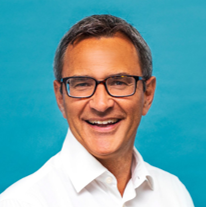
By Lee Thurston ,
Global Proposition Leader MMB Multinational
16/12/2021
Mercer Marsh Benefits’ (MMB) Health on Demand 2021 research compares and contrasts the impacts of the pandemic and types of supports most valued by different segments of the workforce (including caregivers, women, low-income earners, single, LGBTQ+ and ethnic minorities).
It also clearly shows that socioeconomic factors often determine whether an employee gets sick leave, life insurance, and even basic health coverage. In a nutshell, far too often those employees that need the most support are the ones that must do without it.
While the coronavirus pandemic saw health and well-being rise up the corporate agenda, it also highlighted stark disparities in terms of access, affordability, and quality of benefits.
Individuals with household income below the statistical median level are less likely to have medical coverage through their employer (36% compared to 46% of those with a household income at or above the median), short-term disability protection (24% vs. 34%), access to mental health counselling (22% vs 32%) and wellbeing allowances toward fitness, gyms, and nutrition (15% vs 20%).
The good news is that ‘Building Health’ is now firmly on the c-suite agenda. Mental health and workforce exhaustion were both in the top 10 people risks identified by risk and HR managers in our Five Pillars of People Risk 2021 research.
Furthermore, a global focus on ESG means that investors are examining firms closely to see how they address the health needs of their employees and their supply chains. This includes core issues such as gender and race pay gaps and board diversity, but into the future we expect to see more emphasis on efforts employers are taking to make sure their workforces have their basic needs met, for example in areas such as affordable health care coverage.
Dr Lorna Friedman, Senior Partner, Mercer said: “I see health, risk protection, and well-being benefits becoming much more important as employers seek more sustainable people practices.
“Employers have a real opportunity here to flip the pyramid – those at the top of the pyramid typically receive the most benefits whereas those at the bottom have unmet needs.
“The pandemic has highlighted more than ever that the health and resilience of your people is firmly linked to the health and resilience of your business. Ultimately, people risks are impacting business continuity, reputation, and safety.”
Mercer Marsh Benefits brought leading global employers together in a webinar which explored how firms were promoting health and wellbeing, mental health and tackling diversity, equity and inclusion.
Lorna Macmillan, Global Head of Benefits & Rewards Business Partner – Americas, Maersk said that DE&I was a core priority for the organization and had senior management buy-in.
She said: “From a culture perspective, we actually have a D&I focus area for 2021 embedded in our corporate goals. It's a useful platform for us to start talking about D&I and benefits.
Even before this initiative, the firm focused on developing core minimum standards that apply to all employees, no matter who they are, where they work or what they do.
Macmillan said: “They’re not intended to reflect the practice in any particular country, but rather define what we as a company stand for and believe in at a global level. So they’re very helpful, just as a starting point.
“We then are looking at areas of benefits which for various reasons may be exclusive rather than inclusive and are taking action to address that. When the pandemic hit, we looked at life insurance across our business units to make sure our policies were aligned and appropriate.
“It's a journey… You don't solve deep-rooted issues in a few days or weeks, but it’s about building the awareness and the understanding, and then working from there.”
Mary Bissette-Clarke Senior Director HR - Global Benefits, Siemens said that DE&I is also high on the agenda as part of the firm’s vision to transform the everyday for customers, employees and society. She agreed that executive level support is critical for achieving this aim.
She said: “Our leadership supports it at the central level, global level, at a board member level. But on the operational side, our community has been very involved in us educating them, creating awareness, and explaining how it applies to the function and the roles.”
From a broker perspective, Siemens has operationalized DE&I so that brokers and advisors are having discussions as they are doing strategy and renewal discussions. The company also has Flex plans in some markets to support diversity of employees and their different needs.
Bissette-Clarke concluded: “The world is not going to change overnight, we have to keep pushing to make it happen. It’s a cultural change, it's going to take time. In some markets we’re taking some of the survey results that have come out of DE&I by Mercer Marsh Benefits and we’re using it for looking at our plans and our design… We do recognize we do have opportunities to evolve.”
The pandemic has shown how the health and resilience of your people is firmly linked to the health and resilience of your business.